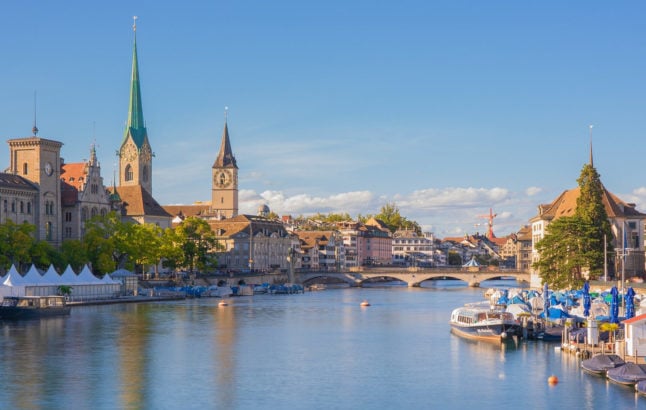In December, Swiss health officials warned the country could cross the 20,000 daily Covid case mark for the first time in the new year.
‘20,000 cases per day’: Experts draw Covid forecast for Switzerland
In just the first week of January, not only was the 20,000 case barrier crossed for the first time, but more than 30,000 cases were recorded in a 24-hour period on multiple occasions.
Zurich Health Director Natalie Rickli has warned that the situation will continue to spiral, with internal modelling showing Zurich could itself be recording 40,000 cases per day by the end of January.
EXPLAINED: What are Switzerland’s current Covid measures?
While Zurich is Switzerland’s most populous canton, 40,000 cases per day would see the region plunged into uncertainty and havoc, with businesses and essential services being forced to shut down due to staff quarantines.
“We are dealing with a monster wave that cannot be stopped. It will overrun the country in the next few weeks,” Rickli told Switzerland’s NZZ newspaper.
“They (Covid cases) will paralyse our society if we do not act now.”
Rickli called for a reduction in the quarantine rules, particularly for those who have been vaccinated.
“That is why the federal government urgently needs to reduce the duration of the quarantine and isolation to five days. We, (the) Health Directors of the cantons of eastern Switzerland, asked the Federal Council by letter on Friday to adjust isolation and quarantine accordingly.”
Switzerland will announce a possible change to the quarantine rules on Wednesday, Finance Minister Ueli Maurer confirmed.
Covid-19: What will Switzerland announce on Wednesday?
Triage for unvaccinated Covid patents?
Ricki also brought up the controversial topic of hospitals deciding between vaccinated and unvaccinated patients in ICUs.
While the current situation in Zurich’s hospitals and ICUs is relatively stable, a dramatic increase in cases could again lead to overcrowding.
Rickli said those who refused the jab should be prepared to give up ICU spots for those who have been jabbed.
“But above all you would have to take those at their word who absolutely refused to be vaccinated. At the moment they make up around 80 percent in the intensive care units,” she said.
“I think such patients should also be prepared to forego intensive treatment and not burden the staff with it for weeks.
“It cannot be that the unvaccinated continue to take us hostage as a society, now that you can see light at the end of the tunnel.”
Swiss authorities have repeatedly ruled out triage between vaccinated and unvaccinated people in Switzerland, saying the main criteria should remain the chances of survival of respective patients.
READ MORE: Should vaccinated people have triage priority in Swiss hospitals?



 Please whitelist us to continue reading.
Please whitelist us to continue reading.
At the same time we should prioritise out people who smoke, drink, eat and sit themselves sick! They should not benefit of their health insurance on the cost of all of us who are strong, healthy and more or less bold and beautiful!
Wow, you really think highly of yourself, Gabriella. Your karma must be quite the bitch!
Are medical professionals really allowed to threat people differently based on their health choices? How about doing some serious journalism around this instead of just being an echo chamber of stupidity?
https://twitter.com/sdbaral/status/1481014492859453446
Hi Per,
The tweet you shared is from Canada, which is a different country.
We’ve covered the discussion surrounding triage for the vaccinated and unvaccinated in Switzerland here.
https://www.thelocal.ch/20211210/should-vaccinated-people-have-triage-priority-in-swiss-hospitals/